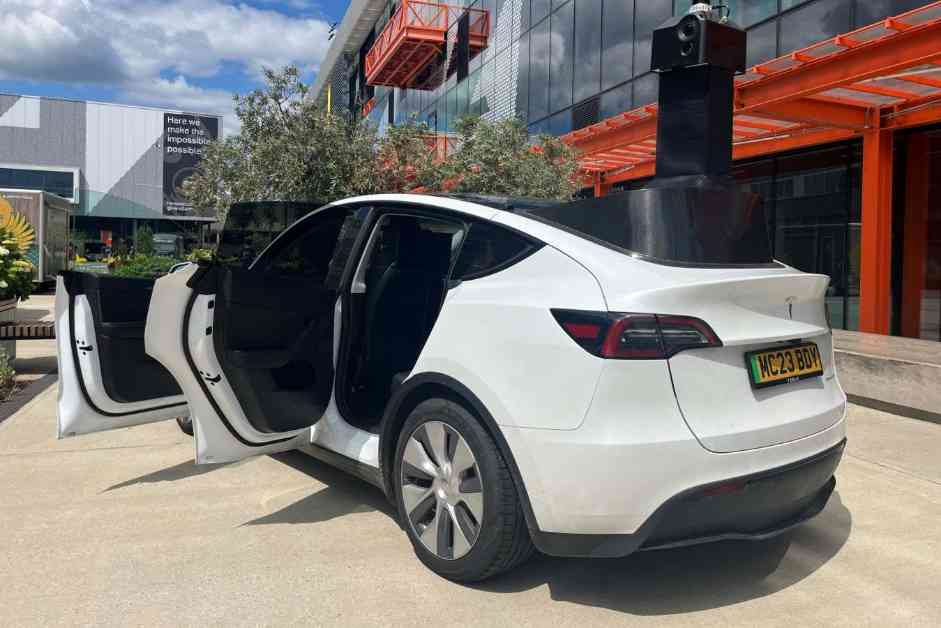A car equipped with advanced technology is scanning buildings across the UK to assess their energy efficiency and condition. These modified Teslas are gathering data on building dimensions, heat loss, materials, age, and state of dilapidation. The information collected will be used to create a digital database detailing the state of buildings to help plan retrofit projects efficiently.
The UK government-funded project aims to address the challenge of decarbonizing the country’s building stock, which contributes significantly to greenhouse gas emissions. With 30 million buildings in the UK, identifying energy leaks and improving efficiency is crucial for achieving net-zero emissions. The current method of using energy performance certificates (EPCs) to assess buildings is slow, expensive, and inaccurate, making it difficult for organizations to plan retrofit projects effectively.
By digitizing the process through the new database and using machine learning, councils and property owners will be able to quickly identify energy-saving opportunities in buildings. This will include information on double-glazed windows, cavity wall insulation, and potential for rooftop solar panels. The database will also calculate predicted energy bill savings, providing valuable return-on-investment data for green finance access.
While the project represents a significant step forward in building renovation and energy efficiency, experts emphasize the importance of in-home surveys before starting any retrofit work. Homes can vary significantly in their condition and layout, requiring detailed assessments to ensure effective upgrades. The data collected by the scanning vehicles could also be used for other projects, such as planning local power grid upgrades or climate resilience initiatives.
As the project moves forward and the database continues to expand, the focus remains on decarbonizing buildings and improving energy efficiency. The vast amount of data being collected presents opportunities for future use, but experts stress the need to consider the environmental impact of storing large amounts of data. By capturing data mindfully and using it effectively, the project aims to accelerate progress towards a more sustainable built environment in the UK.






